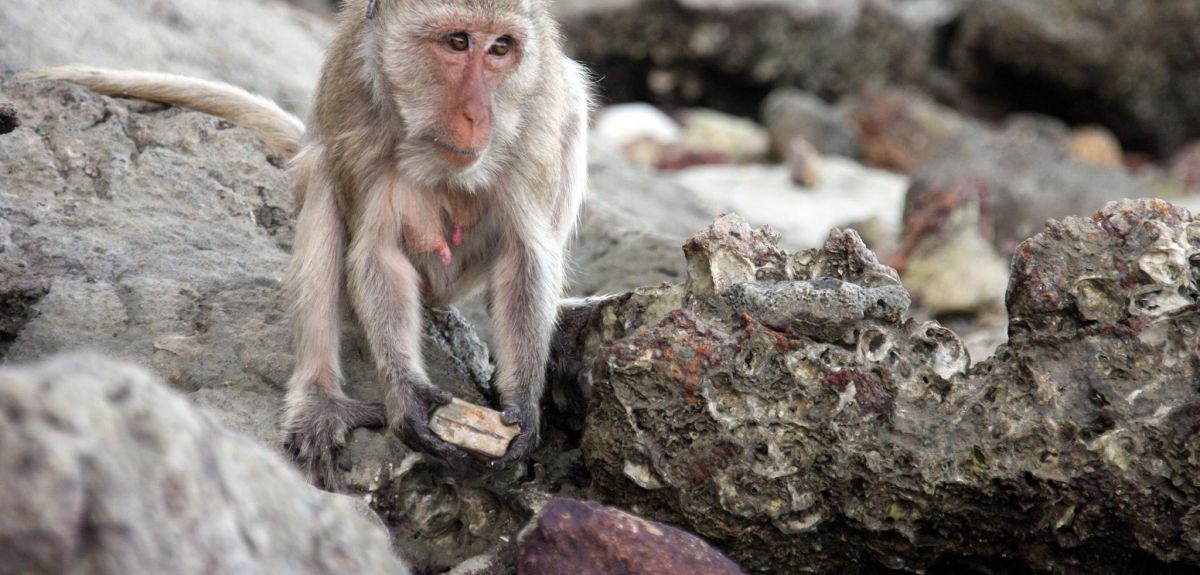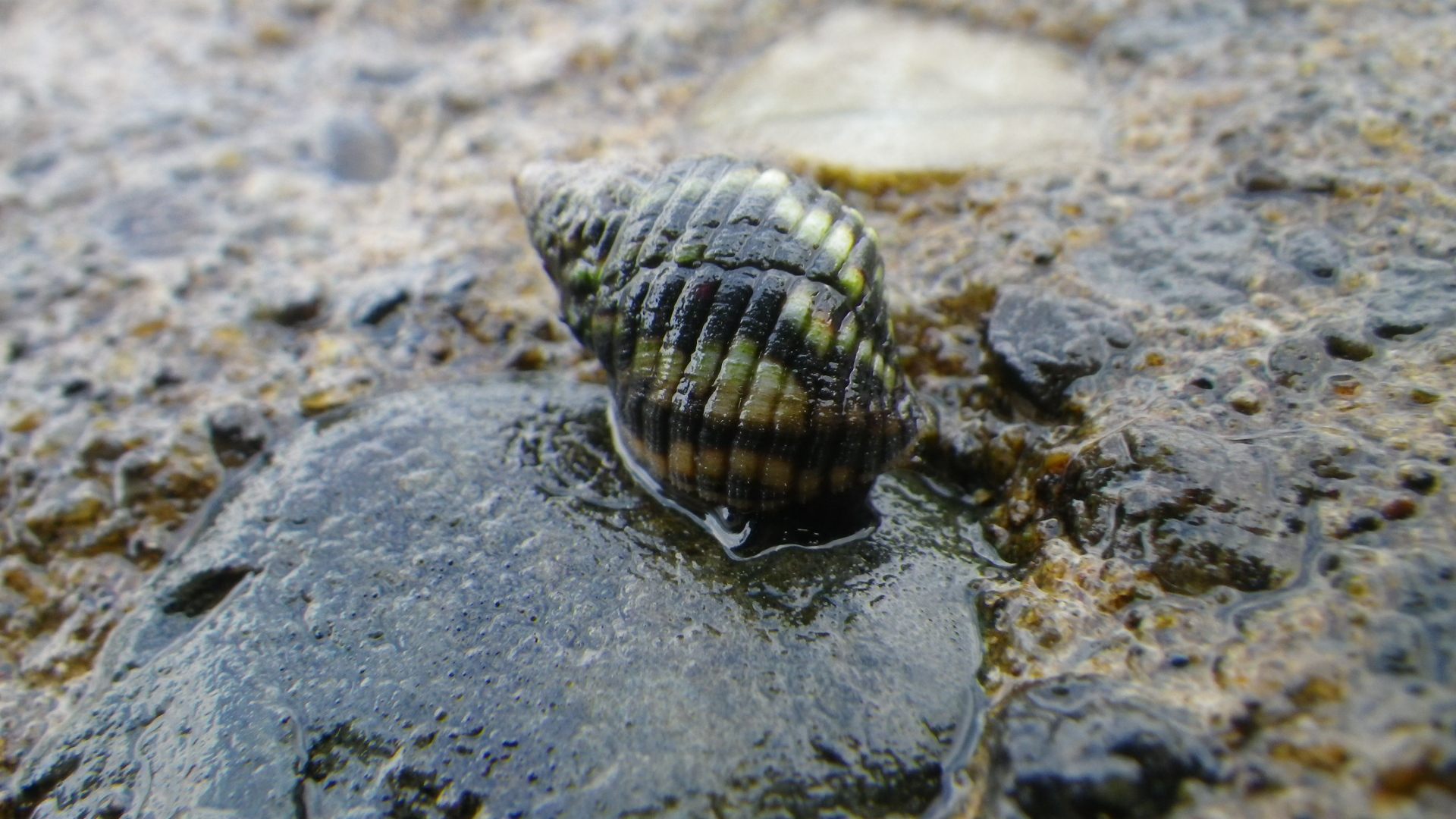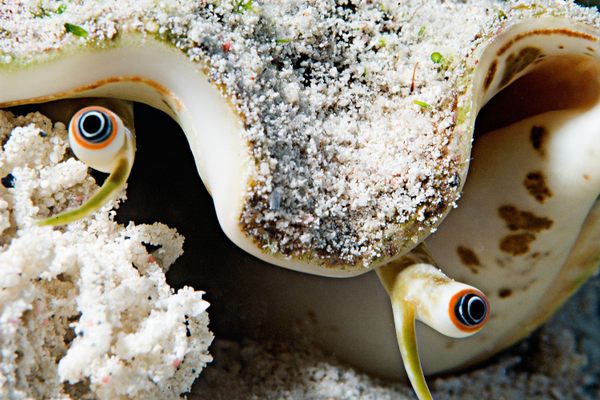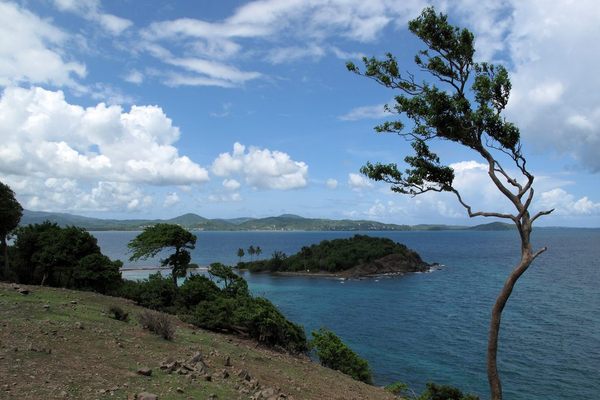We’re Not the Only Primate With Unsustainable Eating Habits
Monkeys using tools in Thailand might be driving their prey to extinction.

Driving other species to extinction might be something of a primate proclivity. A new study suggests that monkeys in Thailand are using tools—just like us—to overfish some tasty shellfish. Long-tailed macaques in a national park in Thailand have figured out how to use rocks to crack open snails and oysters. And they have been busy.
An international team of researchers studied two groups of the macaques on islands in Khao Sam Roi Yot National Park. On one of the islands, NomSao, there is a small population of monkeys that use large rocks to break open big shellfish along the shore. On the other island, Koram, a denser population of monkeys uses smaller stones on smaller shellfish. The researchers suspect that the size difference in prey and rocks used is a result of monkeys on Koram eating all the largest individuals. Their smaller tools match the size of their smaller dinners.

The monkeys on NomSao ate about one-tenth of the island’s periwinkle (a type of snail) population in a year. On Koram, the monkeys eat even more, and periwinkles only survive there for the moment because their larvae drift in from other places. It may not be long before some of the shellfish species go extinct on one or both islands, in which case the monkeys might lose more than an easy food source. “Over-harvesting could ultimately lead to the loss of technological knowledge in these macaques,” write the study authors. If the oysters and periwinkles disappear, the macaques will have no reason to keep using tools and passing the knowledge of them on to their offspring. The technology could be reinvented later, said study coauthor Lydia Luncz, of University of Oxford, in a press release. “This has interesting parallels to the evolution of human stone use, where stone technology might also have been lost and reinvented throughout history.”






















Follow us on Twitter to get the latest on the world's hidden wonders.
Like us on Facebook to get the latest on the world's hidden wonders.
Follow us on Twitter Like us on Facebook